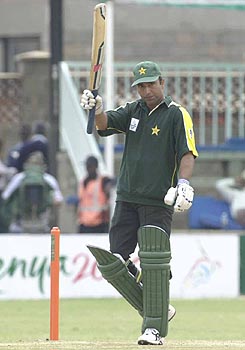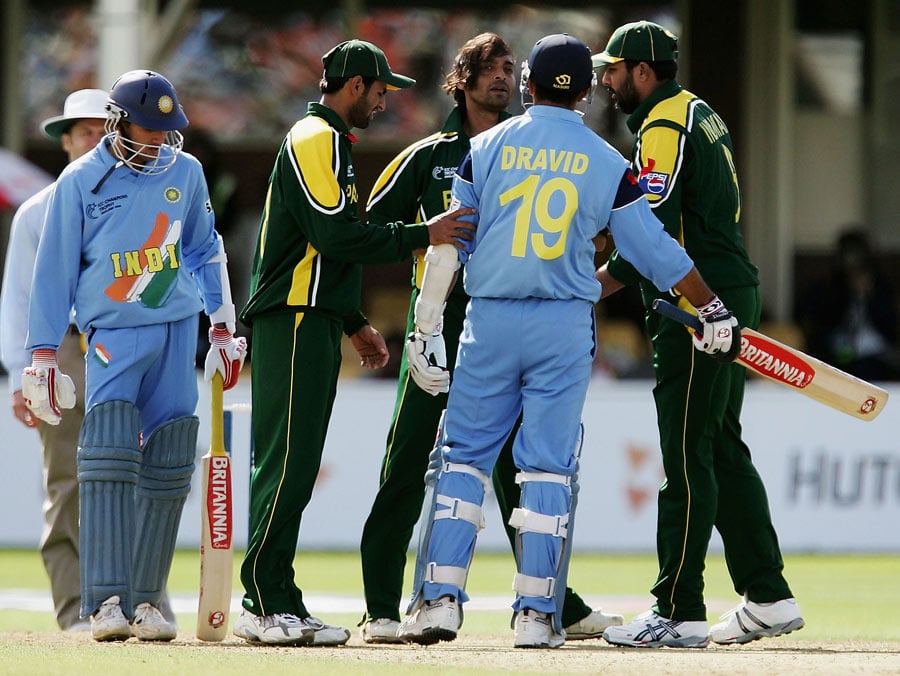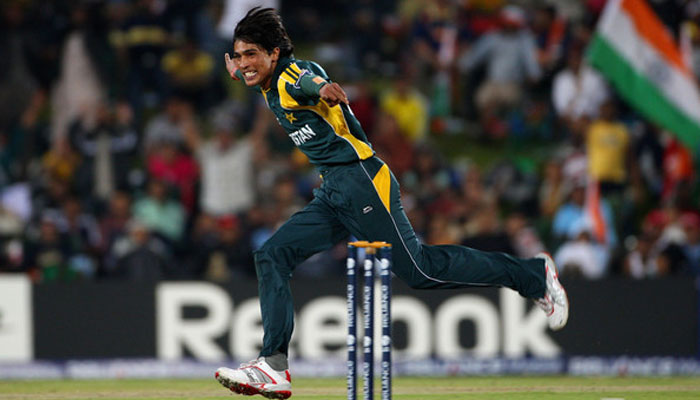June 02, 2017
The ICC Champions Trophy 2017 kicked off from June 1. This is the third time England are hosting the event. India are defending the title while Pakistan, who have never won the coveted trophy, are still looking for their first chance.
Pakistan would be facing India on June 4 at Edgbaston, Birmingham, in one of the most anticipated clashes of the tournament. They have been unlucky in Champions Trophy tournaments so far, always running out of luck at important moments, resulting in their early elimination.
In the first edition of the Champions Trophy in 1998, Aamer Sohail led the powerful Pakistan side against the West Indies. Called Willis International Cup, it was held in Dhaka, Bangladesh and had a knockout format. Pakistan’s loss by 30 runs ‘knocked them out’. South Africa eventually defeated the West Indies in the final, winning their only ICC title till date.

The next time, it was held in the year 2000 in Nairobi, Kenya, with a new name 'ICC Knockout'. Pakistan played the quarter finals, defeating Sri Lanka. Under Moin Khan, the men-in-green managed to reach the semis for the first time. It was sheer bad luck, however, as they lost the crucial match against the Kiwis by 4 wickets. Even back-to-back hundreds by Saeed Anwar could not save them from defeat.
The next tournament in 2002 was no different. Re-christened as ICC Champions Trophy, Pakistan lost the first match by 8 wickets at the hands of the hosts Sri Lanka. Waqar Younis was in-charge, but the team had not many new faces, except a 28-year-old Misbah-ul-Haq.
The team fared better in the 2004 edition, qualifying for the semis. Under Inzamam-ul-Haq, Pakistan won their opening matches, beating Kenya in a low-scoring game and defeating India for the first time in an ICC event. Superb bowling by Shoaib Akhtar and Rana Naved ul Hasan, and responsible batting by Mohammad Yousuf, ensured the victory by 3 wickets. Pakistan lost the semifinal to the West Indies, who eventually ended up winning the trophy.

The 2006 edition, scheduled to be played in India, started on a wrong foot for Pakistan. Shoaib Akhtar and Mohammad Asif were banned for allegedly using performance-enhancing drugs. Inzamam led a depleted bowling attack against Sri Lanka, New Zealand and South Africa, and the only win came out against the Lankans.
Pakistan were scheduled to host the Champions Trophy in 2008, but due to security reasons, it was scrapped less than a month before it was scheduled to take place. It was finally held in South Africa in 2009, where Pakistan arrived after being crowned the T20 World Cup champions.
They won both of their opening matches in style. West Indies, without the senior players, were defeated by 5 wickets; while India lost the match at Centurion by 54 runs. A 206-run stand between Shoaib Malik and Mohammad Yousuf helped set a target of over 300, while the bowlers dismissed the Indians for 248. The sight of a 17-year-old Muhammad Amir dismissing Sachin Tendulkar still remains fresh in the minds of cricket lovers.

Pakistan lost the third match against Australia by 2 wickets but managed a semi-final berth. The semifinal was lost by 5 wickets, no thanks to a dropped catch by then captain Younis Khan. Younis, usually a very safe fielder, failed to hold on to a catch from Grant Elliott, who went on to score an unbeaten 75, in pursuit of 234.
Pakistan’s most forgettable performance came in the 2013 edition in England, which was held after four years for the first time instead of the regular two. The team was unable to cross 200 run-mark in any match and became the only team to lose all matches. The team lost by 2 wickets against West Indies, by 67 runs against South Africa and by 8 wickets against India.
This time around, Pakistan take on India at the same ground on June 4, but the situation is remarkably different. Pakistan have a new side with only four members retained from the previous meeting.
Pakistan have the upper hand against India. They have played them thrice and won two times in this tournament. Although currently ranked eighth in the world, Pakistan look slightly improved in limited overs under the young and aggressive wicket-keeper captain Sarfraz Ahmed, who is considered a fighter by cricket greats. This is the first time he would be leading his side in this event and with players like Babar Azam, Imad Wasim and Shadab Khan at his disposal, Pakistan have a good chance to reach the finals. Sarfraz led Pakistan to a win in the U-19 World Cup final in Colombo way back in 2006, and the opposition was no other than India. Rohit Sharma (4) and Ravindra Jadeja (6) were part of that squad which was bundled out for 71, chasing 110.
West Indies, who have defeated Pakistan many times in this event, are not a part of the tournament while New Zealand, who have blocked their way of reaching the finals couple of times, are placed in the group of death along with Australia, hosts England and Bangladesh. Pakistan, in every alternate event, get the honour of playing the semis, and last time they couldn't. Let’s hope a young team does what seniors couldn’t do in the last seven attempts.